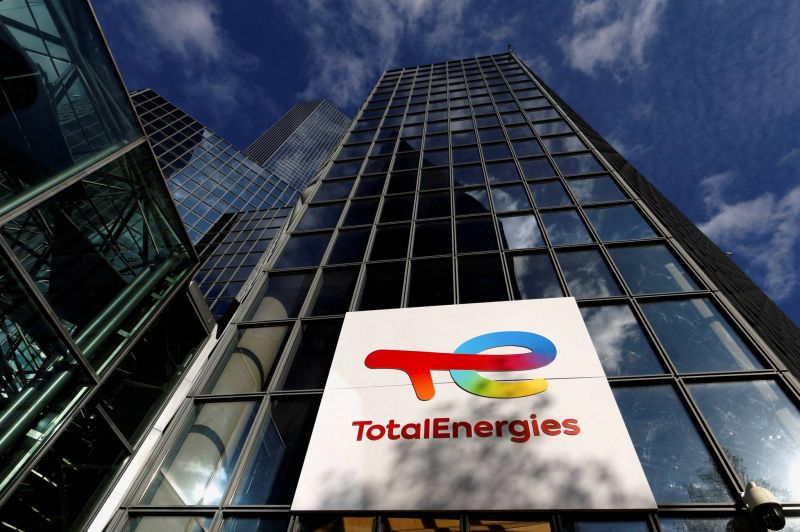
French oil and gas company TotalEnergies logo. (Credit: Gonzalo Fuentes/Reuters)
BEIRUT — The consortium led by France's TotalEnergies, Italy's Eni and QatarEnergy decided to participate in the procedure launched by the Lebanese Petroleum Administration (LPA) to award exploration and exploitation licenses for the supposed offshore hydrocarbon reserves of two more blocks in the Lebanese Exclusive Economic Zone (EEZ). The announcement was in a press release issued on Monday by the LPA, and was confirmed to L'Orient-Le Jour by TotalEnergies. The announcement comes as the deadline for applications was 4 p.m. on Monday.
Blocks Eight and 10 border block nine in the southern part of the Lebanese EEZ. Block Nine lies off Sour in southern Lebanon (in Hezbollah's area of influence) and its boundaries are adjacent to blocks in the Israeli-controlled EEZ. The consortium is exploring the bottom of Block Nine to confirm the presence of gas and justify the development of the drilled well. If the consortium is successful, it will own all the blocks at the southern end of the Lebanese EEZ.
No timetable
When contacted, a spokesman for LPA said that the case would be studied but did not timetable it. They said the results of the exploration process for Block Nine, which began in August, could be available by the end of the month "as planned."
The Lebanese EEZ, where Lebanon has exclusive rights to benefit from resources, is divided into 10 blocks. In 2018, the consortium then led by TotalEnergies, Eni and Russia's Novatek, attained the first licenses issued by Lebanon for Blocks Four and Nine.
The first exploration well was drilled in Block Four (offshore Batroun, North Lebanon) in 2020 without conclusive results. The process in Block Nine was halted until Lebanon and Israeli officials agreed last October on the delineation of their maritime border, putting an end to a dispute that had lasted several years.
Shortly after this US-sponsored agreement was signed, QatarEnergy replaced Novatek in the consortium, which had already committed to relaunching the exploration process this year. The drilling rig TransOcean Barents arrived in Lebanon in August.
Lebanon launched a second round of exploration licenses in 2019, initially covering five of the EEZ's remaining blocks. The deadline for the procedure was extended several times due to a lack of bidders, then reset at the end of 2021 to include all the EEZ's remaining blocks, but without further success. The latest extension dates back to June and expired on Monday.
On the other side of the border, Israel began to benefit from its EEZ where the presence of gas has been confirmed.
At the end of August, Minister of Energy and Water Walid Fayad approved a three-dimensional (3D) seismic survey of the seabed in Block Eight of the EEZ. The survey provides an understanding of the hydrocarbon potential of the areas studied, limiting the risk of drilling operations that would no discoveries. This approach, combined with any positive results from the exploration process for Block Nine, would enable Lebanon to boost the attraction of the remaining blocks in its EEZ, starting with those in the South.
